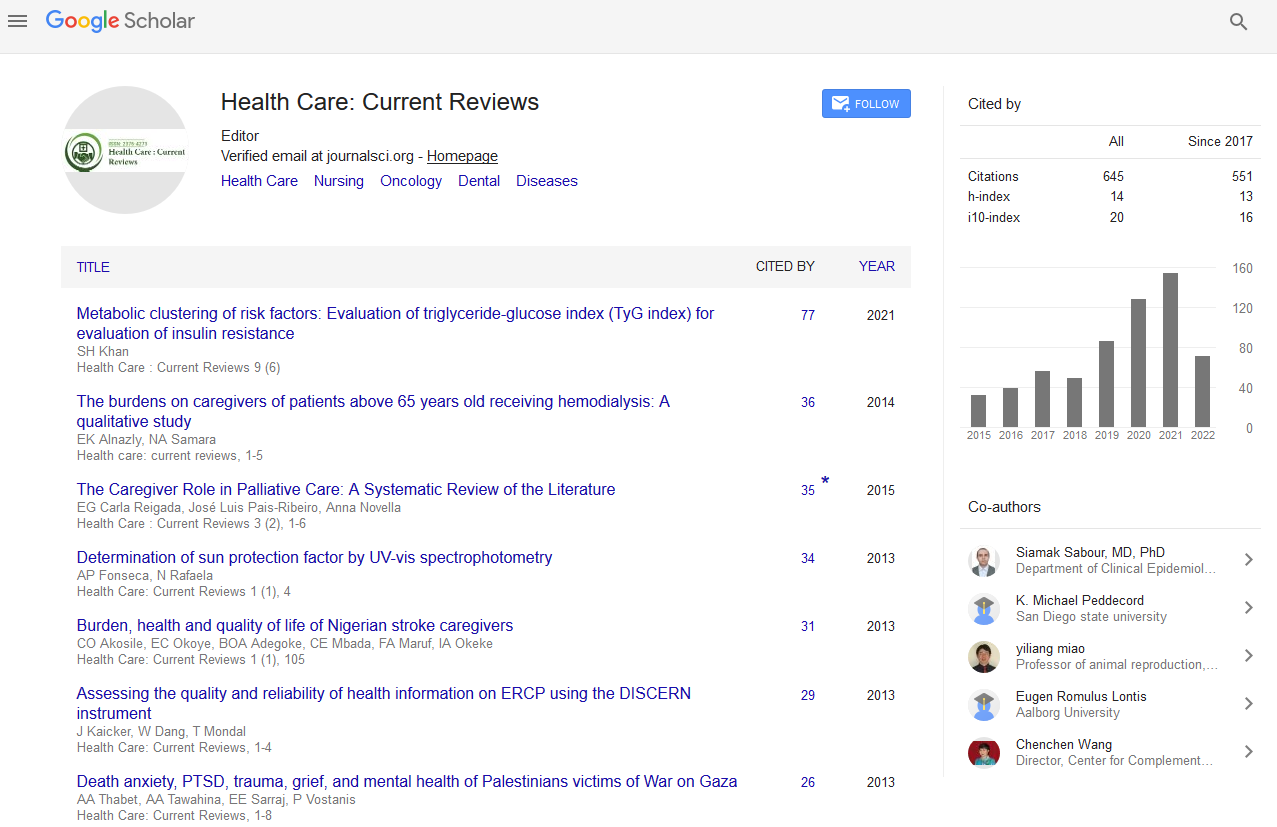PMC/PubMed Indexed Articles
Indexed In
- Open J Gate
- Academic Keys
- RefSeek
- Hamdard University
- EBSCO A-Z
- Publons
- Geneva Foundation for Medical Education and Research
- Google Scholar
Useful Links
Share This Page
Journal Flyer

Open Access Journals
- Agri and Aquaculture
- Biochemistry
- Bioinformatics & Systems Biology
- Business & Management
- Chemistry
- Clinical Sciences
- Engineering
- Food & Nutrition
- General Science
- Genetics & Molecular Biology
- Immunology & Microbiology
- Medical Sciences
- Neuroscience & Psychology
- Nursing & Health Care
- Pharmaceutical Sciences
Abstract
Evolution of Catheter Based Therapies for Persistent and Long-Standing Persistent Atrial Fibrillation: The Amaze Trial
Atrial fibrillation (AF) is the most common arrhythmia of man and the incidence of AF increases with age. AF is known to increase the risk of stroke, heart failure and death. Patients with persistent and longstanding persistent AF generally do not respond to medications. Catheter ablation of AF is associated with a high rate of success in patients with paroxysmal AF. However, once a patient develops persistent or longstanding persistent AF, the outcomes of curing AF drop dramatically with catheter ablation. The development of new technologies and procedures has allowed physicians to perform catheter-based procedures that could previously be done only with cardiac surgery. One such technological development is the LARIAT procedure that allows cardiac electrophysiologists and surgeons to percutaneously exclude the left atrial appendage (LAA) and perform catheter ablation resulting in a percutaneous alternative to the open-chested surgical procedure, the Cox-Maze procedure. The AMAZE trial is a prospective, multi-center trial that was designed to evaluate the safety and effectiveness of the LARIAT procedure to percutaneously exclude the LAA; and to determine if LAA exclusion combined with catheter based pulmonary vein isolation improves maintenance of sinus rhythm in patients with persistent or long standing persistent AF. The mini-review will describe the epidemiology of AF, review current treatment of AF and provide the rationale and status for the AMAZE trial.


